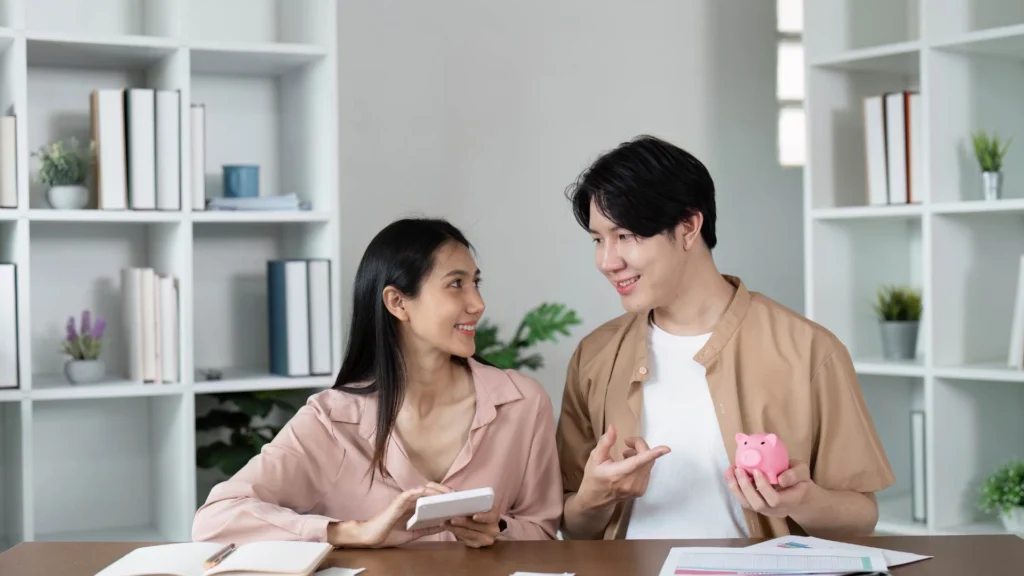Table of Contents
Humans have toiled hard for ages to earn their daily bread and provide basic amenities for their loved ones. It seems ingrained in our psyche that one must work hard and smart to earn money. But what happens when people get free money? Let’s find out.
What Happens When People Get Free Money
Free money isn’t just a pipe dream. There are many ways in which people can fall into free money. For instance:
- You can win the lottery.
- You can get a surprise inheritance.
- Some countries even test giving free money to citizens!
Getting free money might give wings to dormant dreams and long-term goals. You might explore the possibility of owning things that earlier seemed an extravagance. A designer bag, a limited edition watch, that exclusive vacation you have fantasized about – free money could unleash these desires. You could even be someone who invests in a new venture or is philanthropic and helps others in need.
Psychological Impact of Receiving Free Money
So, what happens when people get free money? You’d be surprised to know about the impact of free money on the mind. The effects are both complex and fascinating.
High Initial Response: Unleashed Euphoria
When someone comes into free money, their first reaction is often pure and unadulterated joy. As various studies have indicated, 80% of people felt ecstatic when they received unexpected money. This shock is often accompanied by disbelief. It’s a case of, ‘Is this really happening to me?’ Financial stress drops by 60%. It’s as if a whole burden has been lifted.
The Rollercoaster of Emotions: No Rainbows, Only Sunshine
One in 4 people feel guilty about their windfall. They wonder if they deserve it. These mixed emotions may result in a tug of war for those who haven’t previously owned vast sums of money. Moreover, the pressure to use the money wisely can be overwhelming. Some may even experience ‘impostor syndrome’ – feeling like they don’t belong in their new financial situation.
The Big Questions: Decision Paralysis Sets In
While free money makes people feel free, it also comes with the freedom to be irresponsible. This begs some significant and often stressful questions.
- ‘Should I splurge or save?’ Indulgence battles the wisdom of foresight.
- ‘Should I invest in myself before investing in someone else?’ The urge to be generous conflicts with my personal goals.
- ‘What if I ruin it?’ The constant fear of regret may limit one’s actions.
The ‘Sudden Wealth Syndrome’: A Real Psychological Phenomenon
Believe it or not, there is a formally recognized psychological condition connected with the sudden, unanticipated receipt of large amounts of money for free. Seventy percent of lottery winners spend it all in seven years. This mind-boggling statistic gives one an idea of the hazards of unexpected wealth.
The reasons? Lack of financial planning, impulsive spending, and, most importantly, psychological incapability to prepare oneself for sudden wealth.
The Identity Shift: Money Changes Everything
Receiving free money changes more than your bank balance. You’ll learn to believe less in yourself and those who know you. One in three people keeps their newfound wealth a secret from friends, fearing changes in social dynamics. They believe their friends and family would treat them differently or expect to receive something from them.
Most are perplexed by questions of whether they are still the same person or whether they fit into their old social circle.
The Happiness Paradox: More Money, More Problems?
A US study illustrates that happiness increases with income. This fact has given the ‘hedonic treadmill’ its name, suggesting that people quickly adapt to their new standard of living.
Changes in Spending Habits
When free money appears, our actual financial colors show. Some instantly become responsible and seek to do what most can’t: pay off debt and get closer to savings goals. It’s as if they are hitting the reset button on their financial stress.
Others think it is the ticket to indulgence. Luxury items fly off the shelves, and dream vacations get booked. Their motto? ‘You Only Live Once!’
Then, there are the risk-takers. These individuals could go on to indulge in gambling or high-risk investments.
To the majority, free money is a lifeline. It means catching up with outstanding bills, repairs, or overdue medical care. It’s all about getting life back on track.
Finally, some people turn to investing. The free money is invested in education, training, or even starting a small business. For them, it is an investment into a better tomorrow.
Ultimately, what we use free money for says quite a bit about who we are and what we believe in. It holds the magic of opening doors and changing lives regardless of whether we save or spend it.
Also read: How Can I Make Money Fast Online For Free?
Effects on Work and Productivity
There’s a common belief that if people receive free money, they’ll stop working. However, studies show this isn’t usually the case. Many recipients of basic income programs continue to work and even become more productive.
When financial pressure decreases, one can focus more on fulfilling work, undertake entrepreneurial risks, or pursue more education. Such individuals probably get motivated to choose a job that they like rather than grasping at any work that will feed them. Instead of discouraging work, free money often gives people the freedom to pursue better opportunities.
OpenResearch found that when it gave some of the poorest Americans $1,000 a month for three years with no strings attached, they put much of the money toward basic needs – food, housing, and transportation. And yet, $36,000 wasn’t enough to improve their physical well-being or long-term financial health.
Impact on Health and Well-being
Financial stress directly impacts physical and psychological well-being. Better overall well-being might mean fewer financial worries. Free money helps people feel better mentally, as it indirectly reduces anxiety and depression.
People with access to additional funds tend to make healthier lifestyle choices. They might afford better food and healthcare or even take time off to rest and recover. In the long term, free money can significantly benefit physical health by reducing stress-related conditions.
Social and Community Effects
Free money doesn’t just impact individuals; it can influence entire communities. Sometimes, people who receive free money support their families and friends and start small businesses. This helps foster a community’s well-being and increase social unity.
On the other side, it can also create tension. If some people receive money while others don’t, it might spark differences or jealousy. How the money is distributed is essential in strengthening or weakening social ties.
Case Studies of Guaranteed Income Programs
Incomes considered safe, such as regular payments with no strings attached, have been tested on various continents.
Finland tested a two-year trial providing basic income to unemployed citizens. Many reported lower stress levels, better mental health, and greater life satisfaction. Interestingly, it did not reduce their motivation to find work; instead, they felt more comfortable looking into new opportunities without the pressure of immediate financial survival.
Stockton, California, tested a similar program. Recipients who received $500 a month showed improved mental health, better capacity to work, and increased bonding with family and friends. They could afford choices of what they’d like to do rather than only what they must do to survive.
Also read: How To Get Free Money On Cash App – 5 Simple Ways
Long-term Financial Stability
For some, free money brings immediate relief, but there are better ways to assure long-term stability. This directly affects how the money is spent to effect change. For others, free money is a springboard for access to other opportunities. For example, some may invest money into savings, education, or other job training.
Free money often unearths short-term benefits, but without proper guidance or support, it does not always lead to long-term financial independence.
Potential Downsides and Criticisms
Despite the benefits, free money also has disadvantages. One argument is that it may lead to increased dependency. You may develop dependent habits because you are given money for free instead of cultivating self-sufficiency.
Others are skeptical about large-scale free money programs, as they could harm the economy by causing inflation or government budget constraints.
However, there might even be a chance that free money does not create the relevant change regarding issues such as systemic poverty or unemployment. If other concerns, like the deeper causes of instability, are not addressed, then free money only serves as a temporary solution.
Conclusion
So, what happens when people get free money? Reduced financial stress, improved mental health, and increased spending on essentials are short-term gains that can uplift individuals and communities, offering relief and opportunity. However, the long-term effects largely depend on how the money is used.
Thoughtful financial planning, education or career growth investments, and efforts to improve economic opportunities can turn a one-time boost into a lasting change. Without a broader strategy, though, the positive impact may fade, highlighting the importance of coupling financial aid with sustainable economic measures. Ultimately, free money can be a powerful tool for change, but its real potential lies in how it shapes the future.
A little planning and guidance goes a long way. Beem’s Better Financial Feed can help you overcome debt, spend, save, plan, and protect your money like an expert with on-point financial insight and recommendations. Download the Beem app here.
FAQs
How do people’s behaviors change with a windfall of free money?
People become relieved, empowered, and motivated to pursue personal or career objectives. Spending behavior changes with individual circumstances and priorities.
What are some potential benefits of guaranteed income programs?
These programs reduce financial stress, improve mental and physical health, and allow people to choose meaningful work.
Is receiving free money unbeneficial?
Those opposing the program claim that free money breeds dependency, promotes terrible spending habits, or stresses the economy if not properly managed.














































